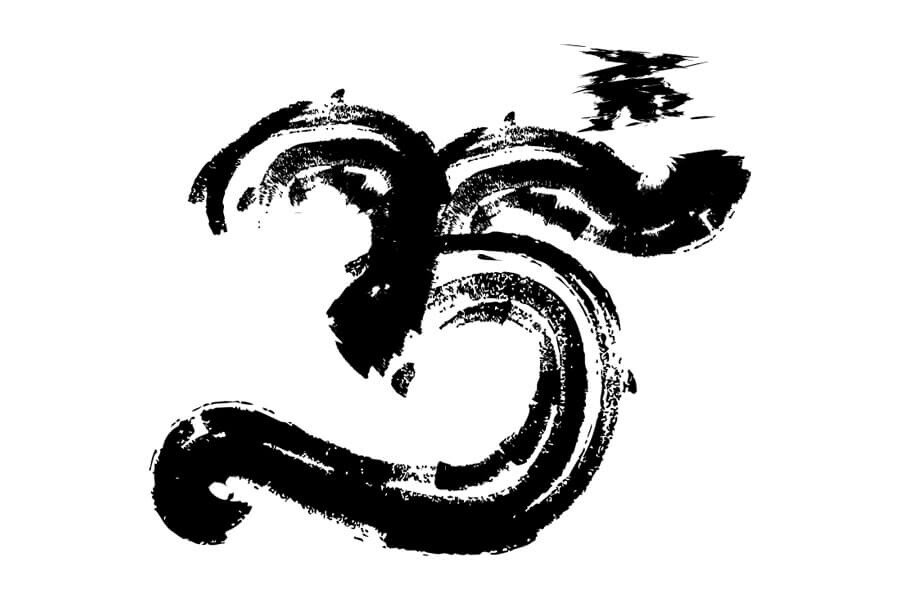The Metaphor of Deepavali
Deepavali, or Diwali as commonly known, will be celebrated on the 12th of November this year. What is the inner, or spiritual, significance of Diwali in Sanatan Dharma? An excerpt from Partho's latest book.

Part Two
That which we call the Hindu religion is really the eternal religion, it is the universal religion which embraces all religions. … This is the one religion that can triumph over materialism by including and anticipating the discoveries of science and the speculations in philosophy .
It is easy to twist a statement like this and jump to the conclusion that since Sri Aurobindo wanted Sanatana Dharma to be the one religion for the whole of mankind, he was a champion of the Hindu religion, even a Hindu revivalist. This is absolute nonsense since Sri Aurobindo condemned the very idea of one institutional religion for the whole world as “a grotesque creation of human unreason, the parent of so much intolerance, cruelty, obscurantism and aggressive fanaticism” and said that such an obsession had never been able to take hold of the free and supple mind of India.
Sri Aurobindo regarded Hinduism primarily as the name of a civilization, of a set of values and not as a credal religion. As he once put it, “How can Hinduism be called a religion when it admits all beliefs, allowing even a kind of high-reaching atheism and agnosticism and permits all possible spiritual experiences, all kinds of religious adventures?”
In his Foundations of Indian Culture, and also in The Human Cycle, he makes a clear distinction between two aspects of religion – religion as spirituality, the seeking for oneness with the Supreme Reality and with all one’s fellowmen, and religion as creed, dogmas and moral codes, which is formal religion.
He never states that things which constitute formal religion are unnecessary. According to him they too are needed by man because the lower members of his being have to be exalted before they can be spiritualized. Thus an intellectual formula is needed by the thinking and reasoning mind, a ceremony is needed by the aesthetic part of our being, a set of moral codes is needed by man’s vital nature to purify and chasten it. But these things are aids and supports of religion, not its essence. Hinduism knew the purpose of these aids and never mistook them for the essence of religion. Thus it was less a creed or cult than a continuously enlarging tradition of the Godward endeavour of the human spirit. It is this spiritual aspect of this religious culture that Sri Aurobindo refers to as the Sanatana Dharma.
But at the same time Sri Aurobindo never assumed, even for a moment, as some of us tend to do, that true spirituality is the exclusive turf of the Hindus. As the Mother, Sri Aurobindo’s collaborator, once pointed out “Genuine spirituality is found in all religions. In every religion there are some who have evolved a high spiritual life.”
It is ironical that the Hindu religionist and most of his critics both share in part the same misconception about the Hindu religious culture and fight over it. The Hindu religionist respects the great Rishis and founders of the spiritual culture of India out of deference for his ancestors and not because he understands and appreciates this heritage; he looks upon himself not so much as the inheritor of his great spiritual legacy but as the defender of credal Hinduism, its forms, ceremonies and temples, and of the socio-political institutions connected with this identity. This is the same part of the Hindu culture which his critics also see as the essential Hindu religion.
In fact, this is the only aspect of Hinduism these critics understand because they are of the progressive rationalist persuasion. For them Hindu spirituality is some kind of folk belief, an irrational fantasy about soul-states and visions – in brief, gobbledygook of some kind. They are convinced that Hindu spirituality has been the bane of this country. Some of these progressive critics have no high opinion of the ancient culture of this country which has been nothing, as they see it, but a product of a series of invasions beginning with the Aryan and ending with the British and between these two the series of Islamic invasions about which they feel rather embarrassed. The secularist credo is that India had no civilization of its own; what she has is a gift of the Aryans who came from southern Europe, and then of the Mongol, Turkish and Afghan invaders and the final finishing touches were given, of course, by the British.
Deepavali, or Diwali as commonly known, will be celebrated on the 12th of November this year. What is the inner, or spiritual, significance of Diwali in Sanatan Dharma? An excerpt from Partho's latest book.
आज की तत्काल आवश्यकता है की आध्यात्मिक एवं बौधिक स्तर पर विकसित लोग सनातन धर्म के लिए खड़े हो, उसकी रक्षा करें और उसके प्रवक्ता और वार्ताकार बनें।
The Age of Sri Aurobindo is here...Excerpted from a talk on Sri Aurobindo and His Relevance in Present-Day India delivered by Dr. Pariksith Singh recently in Jaipur.

